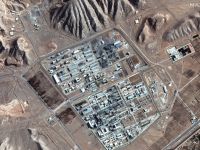Substantial cuts in Jordanian banks' statutory reserve requirements on commercial deposits have freed up funds for lending to spur economic growth, officials and bankers said on Tuesday.
The Central Bank of Jordan (CBJ) has slashed the compulsory reserve requirement on private banks' foreign and domestic currency deposits twice within less than six months to 10 percent from a high 14 percent last March. The CBJ estimates around JD300 million ($423 million) of new funds have been freed to the banking system as a result.
The latest two-percentage point cut came on Aug. 1.
“We aim to raise commercial banks ability to lend further to help in activating the economy in an unprecedented period of monetary stability,” Ziyad Fariz, the CBJ Governor told Reuters.
Commercial banks' total foreign and local currency deposits stood at JD7.9 billion ($11.14 billion) at end-July.
“This is allowing more funds to be invested and it's a signal from the Central Bank that it encourages banks to increase returns and funds available for lending,” said Abdul Qader Dweik, general manager of Housing Bank for Trade and Finance.
Bankers say the reduced reserve requirement was part of the broader CBJ drive since last year to prod banks to lower further lending rates in line with an eased interest rates structure, a policy aimed at spurring domestic investments.
The monetary authorities, dissatisfied with a modest rise in borrowing so far this year, say if banks lent more cheaply to companies, this would be a major stimulant to growth which has averaged just 1.5 percent annually in the last few years.
The CBJ, dealing with conservative family dominated banks, has also been leading a campaign to push them to better utilize funds, diversify their income and enhance their investment role to offset a downturn in commercial business, bankers say.
It recently set rules on banks portfolio management to raise banking sector soundness and to help diversify their investment.
Other rules seek to deepen a secondary market in government public debt instruments by regulating primary dealers.
The CBJ, basking in record foreign reserves of $2.75 billion — equivalent to eight months imports — has gradually lowered interest rates by three percentage points since early last year.
With the dinar's stability assured, the CBJ has enjoyed the flexibility to fine-tune a structure geared towards growth.
For the first time in many years, the CBJ has maintained low interest rates even at a risk of virtually eliminating the differential between the dinar and the dollar — traditionally at least three percent to stem capital flight.
“The Central Bank has a very comfortable reserve situation that helps it,” said Mifleh Aqel, senior banker at Jordan's leading bank Arab Bank.
But the CBJ's problem remains with Jordan's private banks, mostly still reluctant to squeeze further margins between deposit and lending rates — their main source of income — as they face shrinking profitability.
Banks have reduced rates on deposits, hovering around a seven per cent average, by a bigger margin than lending rates that are still at 10 percent, economists and bankers say.
But the CBJ has for the first time forced banks to publish prime lending rates and deregulated their commissions to promote competition and exert more downward pressure on borrowing. —(Jordan Times)
By Suleiman Al Khalidi
© 2000 Mena Report (www.menareport.com)







